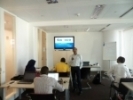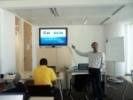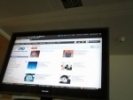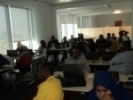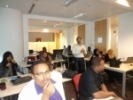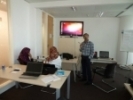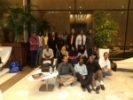Barack Obama proves the power of Open Source – saves $14.5 mn
“Four more years. This happened because of you. Thank you,” Obama tweeted soon after he defeated his Republican rival Mitt Romney in a closely contested 2012 US presidential poll.
Well, we are aware of the fact that the President of the United States of America and his tech team were all over the Internet embracing different kind of tools -may be from social media or from different online campaigns – to win the 2012 presidential elections, but many of us are not aware that open source software also played an important role during the US elections.
Yes, according to arstechnica.com, President Barack Obama’s campaign underspent Romney’s on IT products and services by $14.5 million, putting the money instead into building an internal tech team.

The report in Ars tech says, “The Obama campaign, all-inclusive, spent $9.3 million on technology services and consulting and under $2 million on internal technology-related payroll, while Romney campaign spent $23.6 million on outside technology services-most of it on outside “digital media” consulting and data management.”
The report further added, the bottom line is that the Obama campaign’s emphasis on people over capital and use of open source tools to develop and operate its sophisticated cloud-based infrastructure ended up actually saving the campaign money.
“Key in maximizing the value of the Obama campaign’s IT spending was its use of open source tools and open architecture. Linux-particularly Ubuntu-was used as the server operating system of choice. “We were technology agnostic, and used the right technology for the right purpose,” VanDenPlas, lead DevOps for Obama for America was quoted as saying by arstechnica.com.
“Someone counted nearly 10 distinct DBMS/NoSQL systems, and we wrote something like 200 apps in Python, Ruby, PHP, Java, and Node.js.”
This is not the first time where US has embraced on open source technology.
It may be noted that in July 2009, Rock the Vote, a provider in technology solutions for election process in US, had announced that it has partnered with Open Source Digital Voting (OSDV) Foundation’s TrustTheVote Project, to introduce new online voter registration tools based on open source technology.
===========4 years back============
It would be a bit of a stretch to claim that Barack Obama won the 2008 election because his website ran open source software while John McCain’s ran on proprietary software. But what is not a stretch at all is that Barack Obama’s campaign built a powerful synergy between grass-roots politics and grass-roots technology, while presenting what many consider to be the most disciplined campaign of any candidate in modern history.
That combination of synergetic innovation and single-minded discipline produced this amazing commentary from conservative commentator Alex Castellanos on CNN’s election night coverage, captured here by YouTube:
For those who’d like to do their homework and understand Castellanos’s sources, the book he references is The Cathedral and the Bazaar. The connection between the failing industrial model practiced by companies like Microsoft compared with the organic open source development model is detailed in a whitepaper I published in 2006 titled Software Industry vs. Software Society: Who Wins in 2020?. Who knew that we’d only have to wait two more years before the logic that paper presents would become a mainstream explanation of a mainstream shift in American culture, identity, politics, and economic potential?
Congratulations to President-elect, Barack Obama!
But Open Source has much more to deliver to this President and to the nation, in terms of reforming Washington and our Federal government. One of the strongest criticisms made against Barack Obama during his campaign is that he consistently said that he would go through the Federal budget “line-by-line” and cut wasteful spending, but he never gave any specifics. The open source-based application http://USAspending.gov was implemented after Congress passed a law in 2006 saying that by the start of 2008, every government contract for every government agency (except those that are classified) had to be online, with information disclosing costs, sponsors, contractors, etc. By using open source software and an open source-friendly governance model, the program was delivered ahead of schedule and under budget. And everybody in the world can now inspect the Federal budget on a line-by-line basis.
Since we have been encouraged to participate in this great new democratic experiment, with a President who welcomes our participation, I suggest that we use this great application to help our incoming President identify some of the spending that might best be cut. It’s something we can all do, and it’s something that we should all do. With many eyes, all (budget) bugs are shallow…
Source : http://opensource.org/node/372




